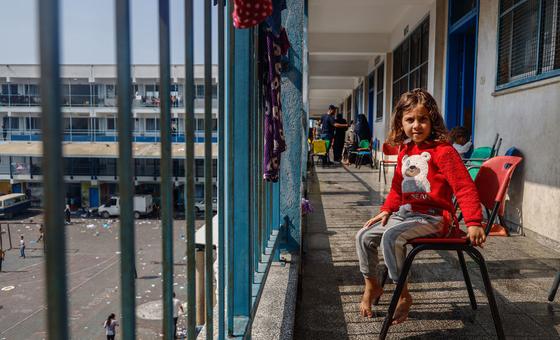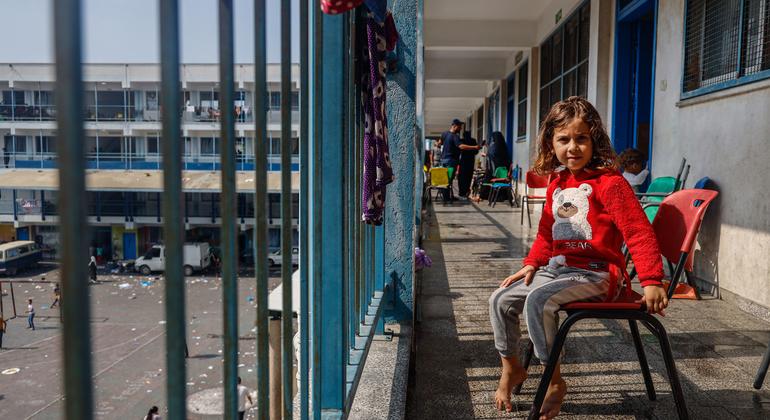
In a letter addressed to the President of the UN General Assembly, which provides the agency with its mandate, he said the agency’s ability to fulfil that mandate “is now seriously threatened”.
“In just over four months in Gaza there have been more children, more journalists more medical personnel and more UN staff killed than anywhere in the world during a conflict”, he said.
He noted more than 150 UNRWA premises have been hit by bombardment, killing over 390 and injuring 1,300.
“According to UN experts, famine in imminent”, he reminded.
Highlighting Israel’s allegations in January against 12 UNRWA staffers accusing them of involvement in the horrific 7 October terror attack, Mr. Lazzarini also reminded that he had immediately dismissed those accused in good faith, yet, “to date, no evidence has been shared by Israel with UNRWA.”
The resulting suspension of aid by 16 donor countries totalling $450 million means that without new funding UNRWA operations across the Middle East will be severely compromised from March.
Deliberate misinformation
Mr. Lazzarini said that in recent weeks there has been “a concerted effort by some Israeli officials to deceptively conflate UNRWA with Hamas, to disrupt UNRWA’s operations and to call for the dismantling of the agency.”
He said these operations have created staff security risks, obstructed its mandate to serve Palestinian civilians and made it impossible to function without host State consent.
“I fear we are on the edge of a monumental disaster with grave implications for regional peace, security and human rights”, he added.
He said it was widely acknowledged that UNRWA is vital to the rights and security of both Palestinians and Israelis as it provides a “stabilizing role” as well as lifesaving humanitarian services.
A fundamental decision
Mr. Lazzarini said Israel’s call for closure were not about concerns over neutrality but rather about “changing the long-standing political parameters for peace in the occupied Palestinian Territory”.
He said the General Assembly “now faces a fundamental decision”. Either allow UNRWA to be swept aside without political consultation and agreement on the part of Palestinians, or chose to make a moment of crisis a “catalyst for peace.”
“In which case I urge the General Assembly to provide the political support necessary to sustain UNRWA”, or to create a path for UNRWA to “transition immediately into a long-overdue political solution that can bring peace to Palestinians and Israelis.”
If General Assembly members chose to sustain the agency, he called for a change in its funding structure which would end the reliance on voluntary contributions “that make it vulnerable to wider political considerations”.



